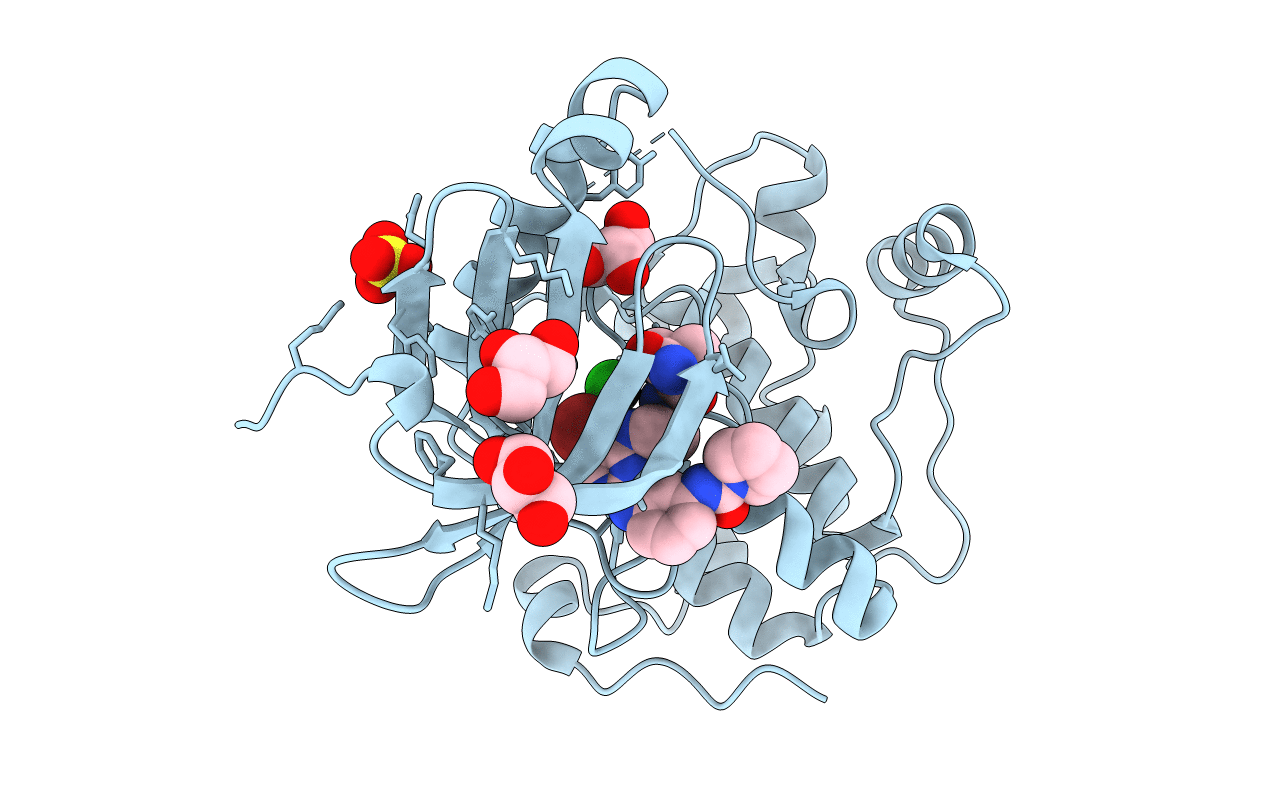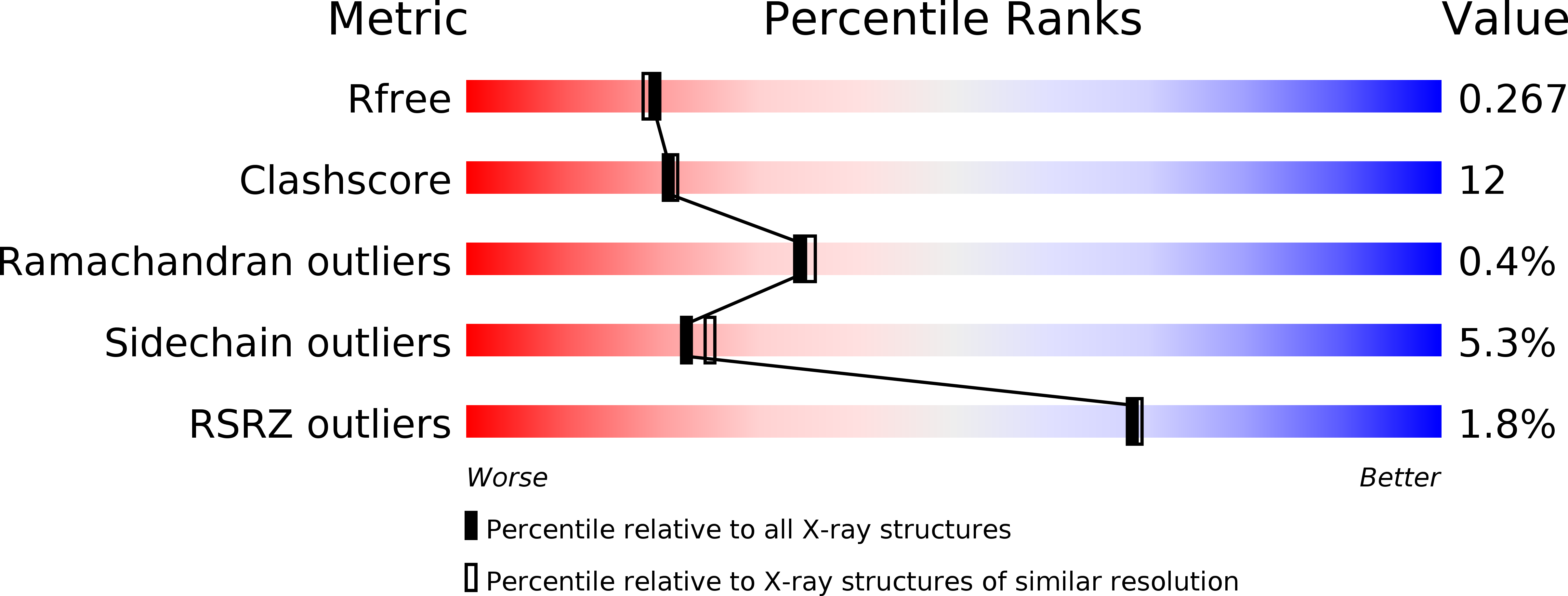
Deposition Date
2005-03-18
Release Date
2005-04-19
Last Version Date
2024-10-30
Entry Detail
PDB ID:
1Z5M
Keywords:
Title:
Crystal Structure Of N1-[3-[[5-bromo-2-[[3-[(1-pyrrolidinylcarbonyl)amino]phenyl]amino]-4-pyrimidinyl]amino]propyl]-2,2-dimethylpropanediamide Complexed with Human PDK1
Biological Source:
Source Organism(s):
Homo sapiens (Taxon ID: 9606)
Expression System(s):
Method Details:
Experimental Method:
Resolution:
2.17 Å
R-Value Free:
0.26
R-Value Work:
0.21
R-Value Observed:
0.21
Space Group:
P 32 2 1


